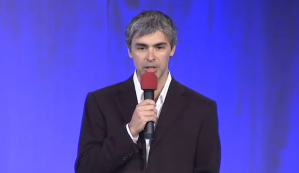
A federal judge has ruled that Oracle may depose current Google CEO Larry Page in Oracle’s lawsuit over Java technology in Android—but only for two hours, and only in matters relevant to the allegation of copyright infringement and Android’s overall value to Google. The move is another way for Oracle to increase pressure on Google in what’s turning into a high-stakes case: Oracle has said it believes it’s owed at least $2.6 billion over infringement in Android.
The approval to depose Page was first reported by FOSS Patents.
Oracle says deposing Page is important to their case, since—before stepping into the CEO role at Google—Page headed up negotiations between Google and Sun to use Java technology in Android. Oracle also says Page may have been responsible for Google’s acquisition of Android, and likely played a role in Google’s decision not to license Java from Sun but instead to run with the alternative Dalvik engine for handling Java.
Google characterized Oracle’s request to depose Page as simple harassment.
Although Google’s Android operating system is touted as being “free,” the mobile operating system faces a number of patent challenges, often by proxy: Apple is suing Taiwanese phone maker FTC, alleging its Android devices violate Apple patents. Apple recently won a victory in the case; if Apple is able to win the case or wrest a settlement from HTC, it will be in a powerful position to assert patent infringement claims against other Android device makers. Similarly, Microsoft has eagerly been locking up patent licensing agreements with Android device makers, offering to exempt them from any litigation if it decided to launch infringement claims against Android: Microsoft reportedly wants $15 for every Android device Samsung sells.
Oracle alleges the Dalvik engine used in Android violates Java copyrights, and that Google even directly copied Java source code into Android. Oracle acquired Java when it took over Sun Microsystems in 2010.
Google denies any wrongdoing.
Editors' Recommendations
- Samsung Galaxy S20 Plus vs. Google Pixel 4 XL: Which big phone wins?
- Google owner Alphabet has reportedly made a bid to buy Fitbit
- Google pits design teams against each other to create next winning Pixel phone

